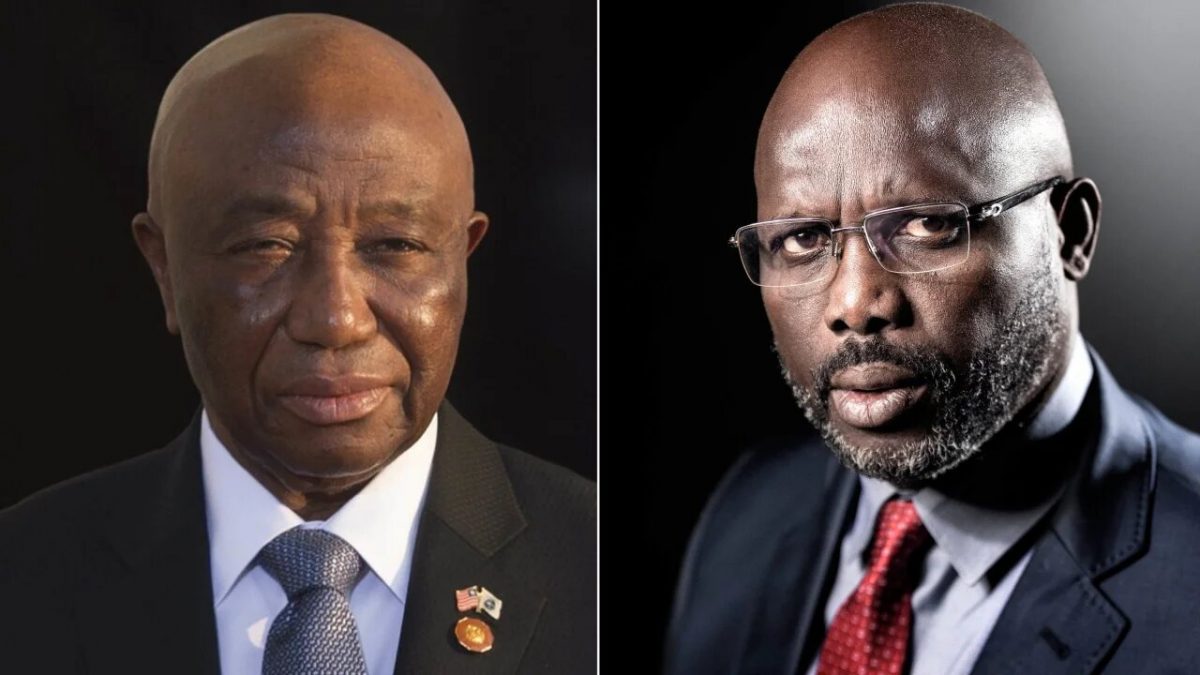Lessons Africa nations can learn from Liberian polls

“The Liberian people have spoken, and we have heard their voice.” Those were the words of Liberian President George Weah as he conceded defeat to former vice president Joseph Bokai who is set to take over the presidency in January.
President Weah’s concession is a great milestone for Liberia, a country which had its first peaceful transfer of power in a democratic election in more five decades only six years ago when Ellen Johnson Sirleaf handed over to George Weah. In 2011, I was in Liberia and witnessed both the first round of the elections that saw Winston Tubman and his then running mate George Weah force a runoff and the runoff that saw President Sirleaf, backed by Prince Yommie Johnson, win her second term.
You see, 2011 was a real moment for Liberia as that was the second election after Charles Taylor was forced to leave. It was a very tense time, but Liberians rose from the ashes of a 14-year plus civil war to show the world that indeed “monkeys had come down”– their metaphor for the end of the drums of war as the warlords had left the forest.
After 2011 triumph and steering Liberia for her final six years, Sirleaf just like our former President, Uhuru Kenyatta did last year, decided to support the then opposition candidate Weah at the expense of his vice president Joseph Boakai.
President Sirleaf would appear with the then Montserrado Senator, George Weah, in functions that were literally campaigns for Congress for Democratic Change (CDC) party at the expense of her Unity Party and its candidate Boakai. Weah, who had redefined in himself in their equivalent of midterm elections and became the Senator for Montserrado County, the county that has Monrovia City, took his popularity to another level by unveiling Jewel Taylor as a running mate. Jewel Taylor is the former first lady, the wife of Charles Taylor, who in 2011 was still very popular despite his indictment and eventual conviction at the Hague. He who won the 1997 elections with the outrageous slogan “He killed my ma, he killed my pa, but I will vote for him.”
But six years down the line Boakai has stormed to power in an election that President Weah has described as a win for the Liberian people. Indeed, it is not about who has won but the growth of democracy in this beautiful country. Granted, it is not so much about President-elect Boakai as it is about the expectations that Liberians had when they elected Weah. Expectations he appears not to have met.
The African voter is increasingly becoming a conscious and popularity without delivery does not guarantee voter confidence. We have seen incumbents lose in Nigeria, Ghana, Malawi, Zambia and now Liberia. The power of incumbency does not help if a president does not address the plight of the people. Ghana showed John Mahama the boot in 2017, Edgar Lungu lost in 2021 despite having the reins of power in Zambia, Peter Mutharika of Malawi was trounced in 2020 and now Weah will leave the Executive Mansion.
In my experience of the 2011 Liberian elections, I enjoyed their civil campaigns. I attended President Sirleaf’s rallies in the City of Yekepa and admired the short power distance. I literally walked next to President Sirleaf as my student Arthur Trobeh from ABC University in Yekepa covered the campaigns. I enjoyed Charles Brumskine’s campaigns in Nimba County and his powerful messages. It was also surreal experiencing Prince Johnson’s campaign. When we were young there was this phrase “in by gun out by gun” in reference to President Samuel Doe rise to power in 1990 with the assassination of President Tolbert and his eventual fall in 1990.
Prince Johnson, is that brutal rebel leader who videotaped his torture and execution of Samuel Doe. He is a Senior Senator in Liberia representing Nimba county.
History aside, having a president like Weah who guarantees a peaceful, transparent, free, fair, and credible elections and concedes defeat in a knife edged contest means that six years ago Liberians got it right. And in electing Boakai they have shown the world that in a democracy, power is not given forever and neither do power holders get more power to lead unless they address the plight of the people. For six years Weah and Jewel Taylor had the time to deliver, they did their part, but it wasn’t enough to earn them six more years. The time has come for Joseph Boakai. Liberia to the world.
— The writer is a PhD candidate in political communication












